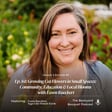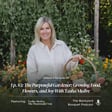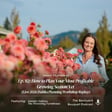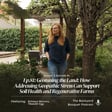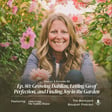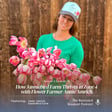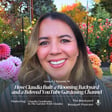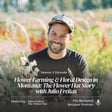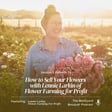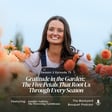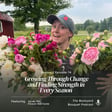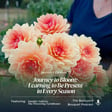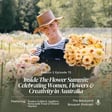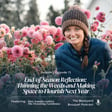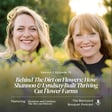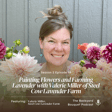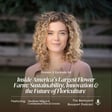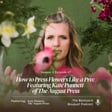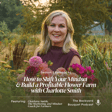
Ep. 59: Frances Palmer on ‘Life With Flowers’: Gardening, Pottery, and the Art of Everyday Beauty
In this episode of The Backyard Bouquet, we are joined by Frances Palmer—renowned potter, gardener, photographer, and author—to celebrate the release of her newest book, Life With Flowers. Known for her iconic handmade vessels and stunning floral photography, Frances shares how a life rooted in creativity, cultivation, and intention can lead to unexpected beauty and joy.
In their conversation, Jennifer and Frances explore:
- The inspiration and creative process behind Life With Flowers
- How gardening, ceramics, and photography intersect in Frances’s daily life
- Lessons learned from decades of self-taught artistry and flower growing
- Why imperfection and process are central to creativity
- The role of seasonal rhythms in her work—and her favorite flower to grow (even if it's a challenge)
- How tending a garden supports mental health, mindfulness, and connection with the earth
- Tips for photographing flowers using natural light and simple setups at home
Whether you’re a flower lover, artist, or someone yearning to create a slower, more beautiful life, this episode is a nourishing reminder to keep growing—one bloom, one pot, and one season at a time.
Show Notes: https://thefloweringfarmhouse.com/2025/05/20/ep-59-frances-palmer-life-with-flowers/
Purchase Life With Flowers: https://amzn.to/44LtaLj
Connect with Frances:
Website: francespalmerpottery.com
Instagram: @francespalmer
***Rate, Review, & Follow The Backyard Bouquet***
If you enjoyed this episode, will you please consider leaving the podcast a review? Your review helps make the podcast more discoverable to others and allows me to continue creating more episodes. I'd love to know what you enjoyed most about the episode.
New episodes every week to help keep your garden blooming!
